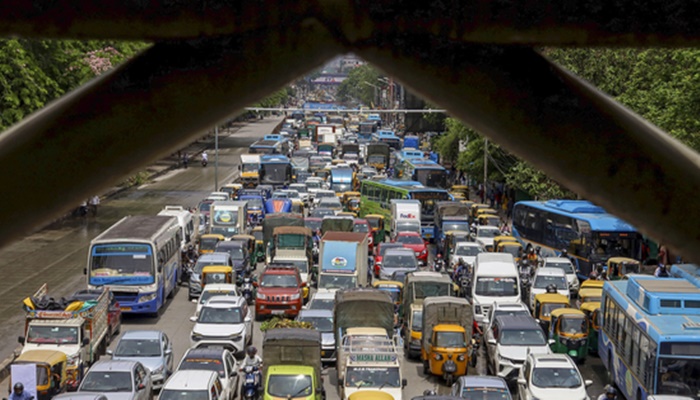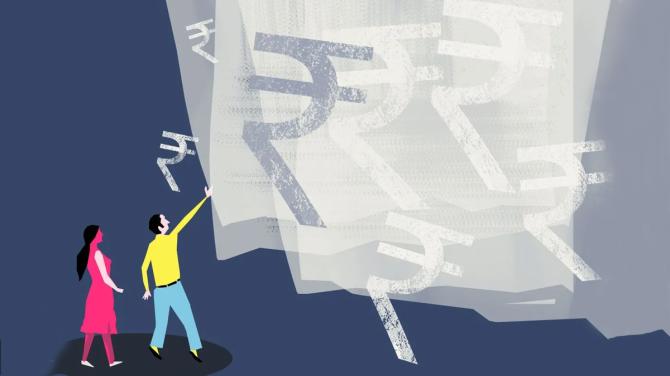The Supreme Court allowed an Appeal filed by the Reserve Bank of India (RBI), setting aside the Judgment of the Division Bench of the Kerala High Court.
The Supreme Court held that approbation and reprobation by employees is not permissible in pension schemes.
The Court allowed an Appeal filed by the Reserve Bank of India (RBI), setting aside the Judgment of the Division Bench of the Kerala High Court, while upholding the decision of the Learned Single Bench, which had dismissed the Writ Petition by the Respondent seeking pension from his retirement date, after he exercised his option as per the RBI Regulations/Circular dated September 14, 2020.
The Bench of Justice Abhay S Oka and Justice Augustine George Masih noted, “The financial burden and the liability were therefore, prominent aspects taken into consideration by the Government while granting its no objection to the proposed Scheme for switching to the Pension Scheme to the erstwhile CPF Scheme optee employees.”
Brief Facts
The case centered on the pension scheme for RBI employees. Prior to 1990, employees were governed by the Contributory Provident Fund (CPF) and the Payment of the Gratuity Act, 1972 (Gratuity Act). On October 29, 1990, the RBI, with approval from its Central Board of Directors, introduced the RBI Pension Regulations, 1990. This allowed employees to opt for either the CPF scheme or the pension scheme.
The Respondent had opted for the pension scheme as per the September 14, 2020, Circular. This option required him to refund the entire amount of CPF (Bank’s contribution along with interest) already received by him, along with 6% simple interest per annum, or an amount equal to 50% of the aggregate amount of CPF (Bank’s contribution along with interest) received, whichever was lower. He also had to undertake that the entire amount of CPF (Bank’s contribution along with interest) would be paid by him within two calendar months from the date of receipt of the intimation. Failure to refund within the stipulated time would result in his option for pension being treated as null and void, and he would continue to be governed by the CPF Scheme.
Court’s Reasoning
The Supreme Court noted, “As per the pleadings, the retrospective financial burden would have resulted in an unjustified liability of over 900 crores for the RBI, which would have led to a financially unsustainable scenario. This aspect has also been pressed into service by the Counsel. The decision of the Government falls within the realm of policy decision, keeping in view of the considerations taken note of before ultimately approving the Scheme of switch-over as a last option to the persons who were eligible under it as laid down therein.”
“Therefore, it cannot be said that the cut off date, as fixed for grant of pension while refusing its retrospectivity, thereof would be arbitrary or illegal or discriminatory in nature…Moreover, based on the facts of the case, the Respondent cannot be permitted to blow hot and cold in the same breath, as stated above. Each Circular had its own specific terms and conditions, entitling the retirees or in-service employees to the benefits as were laid down therein and that too subject to certain conditions,” the Bench emphasised.
“The said scheme itself was a well-considered and thoroughly worked-out detailed financial liability aspect. The said Scheme therefore to be operational and effective and above all, a viable one was to operate as a whole. The present Scheme of the year 2020, was a conglomerate of various factors, with each factor working in tandem with the others making it an effective and workable Scheme which when tested on the principles laid down by this Court as referred to above would not fall foul of it,” the Court explained.
The Bench held, “The financial aspect, in itself, is a valid consideration, as stated above, and would be applicable in the present case. The Respondent, therefore, cannot be permitted to choose a particular aspect of the Scheme that makes it unworkable, and that too for his own financial benefit. Approbation and reprobation would not be permissible in such schemes. Respondent having once opted for the Scheme cannot be permitted to not accept a part thereof while intending to take the benefit of the Scheme as a whole.”
Consequently, the Court ordered, “There being no violation of the Constitutional, Statutory or Common Law principles, interference by the Division Bench vide the impugned judgment while setting aside the judgement of the Single Judge cannot sustain…In view of the above, the impugned judgment dated 18.12.2023 passed by the Division Bench of High Court of Kerala, therefore, cannot sustain and is hereby set aside and the Judgment of the Learned Single Judge dated 04.04.2023 dismissing the writ petition preferred by the Respondent is restored. The appeal is allowed.”
Accordingly, the Supreme Court allowed the Appeal.




















